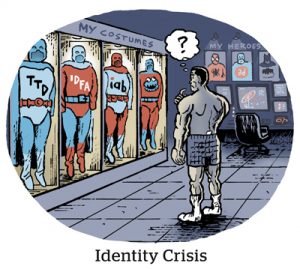 The ad fraud and verification company Human announced on Wednesday that it has merged with PerimeterX, a cybersecurity and identity fraud detection service.
The ad fraud and verification company Human announced on Wednesday that it has merged with PerimeterX, a cybersecurity and identity fraud detection service.
The two startups were introduced by investors and board members familiar with both their businesses, according to Human CEO and Co-Founder Tamer Hassan.
Terms of the deal were not disclosed.
“We were all skeptical, because it’s not so common to pursue a directly competitive merger or acquisition,” Hassan said.
But the two companies are complementary, he said, even while they compete. Human has its roots in media, advertising and ad tech fraud, with newer businesses in financial services and ecommerce fraud. PerimeterX is an old hand at ecommerce and retail fraud detection, but doesn’t have an advertising business.
The ad tech world is enchanted by the potential growth of retail media. Human certainly isn’t immune, and PerimeterX could be an entrée to new customers in that category.
“Many of the customers in online ecommerce and retail either have moved or are making a move to be more a part of the advertising ecosystem,” Hassan said.
Also, as near competitors, Human and PerimeterX have very little customer overlap, he added.
PeirmeterX will fold into Human, and Omri Iluz, PerimeterX’s CEO and co-founder, will become Human’s new GM of enterprise security, an aspect of Human’s business that will be much beefed up by the merger.
Hassan said it’s important to bring together infosec and security-focused executives – as in, the main points of contact for most of PerimeterX’s client roster – with the marketing org, rolling all the way up to the CMO, which is the group Human most often collaborates with.
Not that marketing and security folks don’t sometimes work together, but it’s still rare.
“There are some cases where teams are forward looking and we get a CMO and chief security officer together in the same room, where they’ve realized that they have different pieces of the same puzzle,” he said.
For instance, consider a shoe manufacturer or fashion company dealing with ad fraud in digital media that adds site security tools because automated bots are hoovering up big-ticket items released online. A brand marketer might also want to strengthen its company’s cybersecurity to deal with more and more sophisticated account breach attempts, since marketing people are likely also investing heavily in first-party data collection and loyalty programs.
By the same token, a bot operator detected by Human on the digital ad side could be using the same tactics – heck, it might even be the same bot network – to plague a company by fraudulently swiping scarce items during a release and reselling them to actual fans.
“Part of the synergy here is the signal that spans across different verticals,” Hassan said. “When we start to see behaviors and signals from ecommerce, financial services and advertising all start to come together, it gives us visibility against attackers and fraudsters that starts to shift the economics of the problem.”















